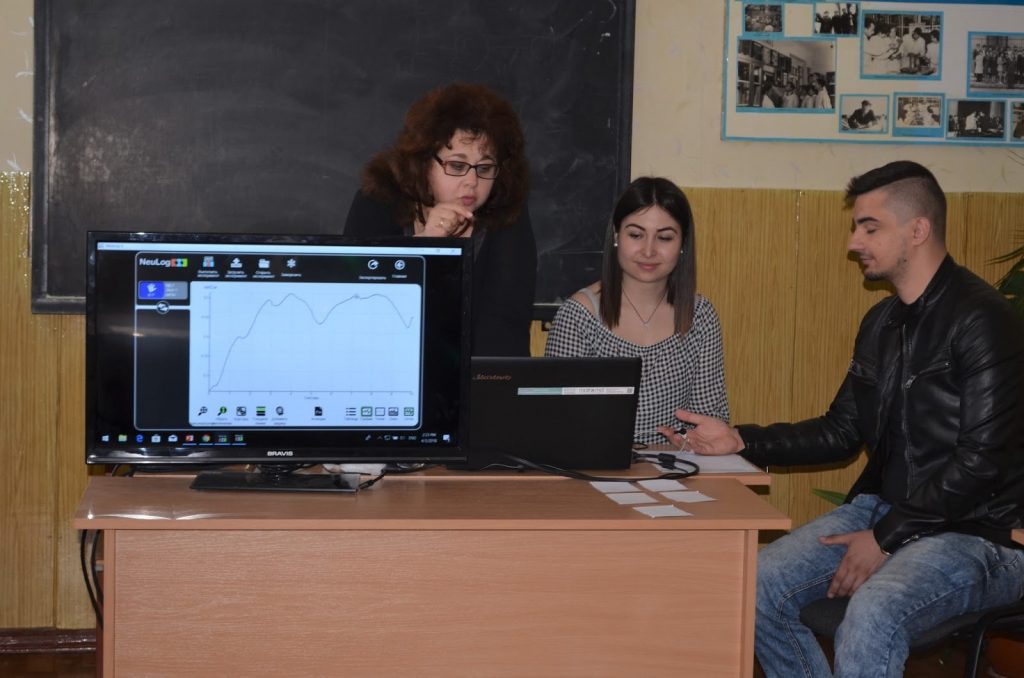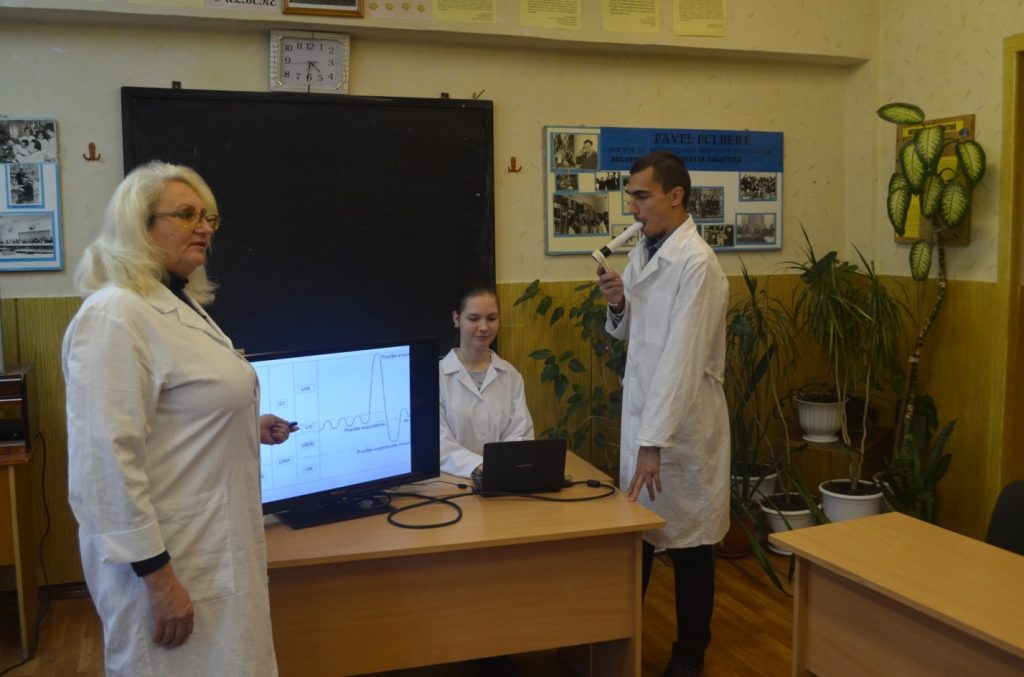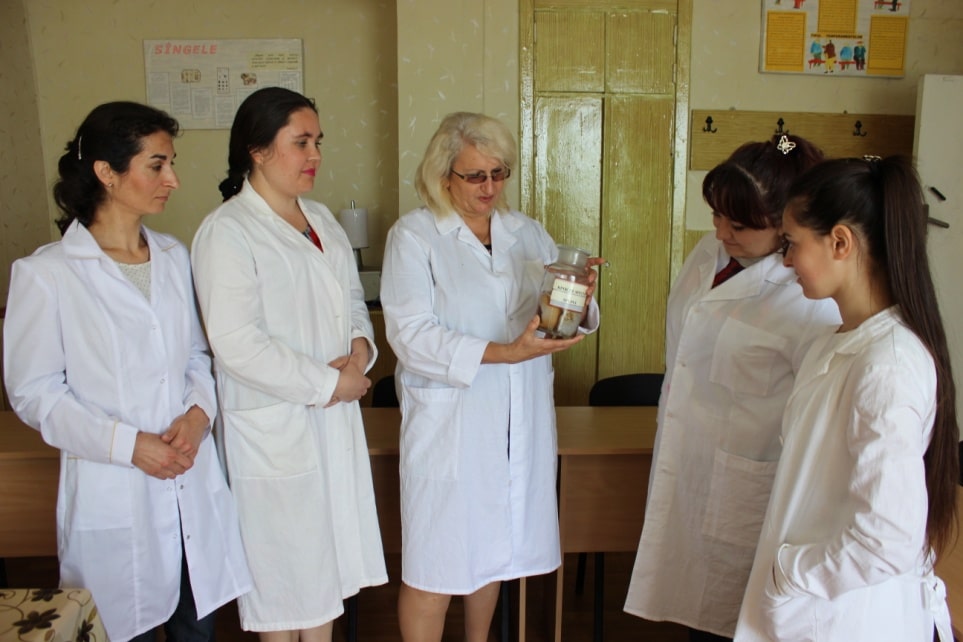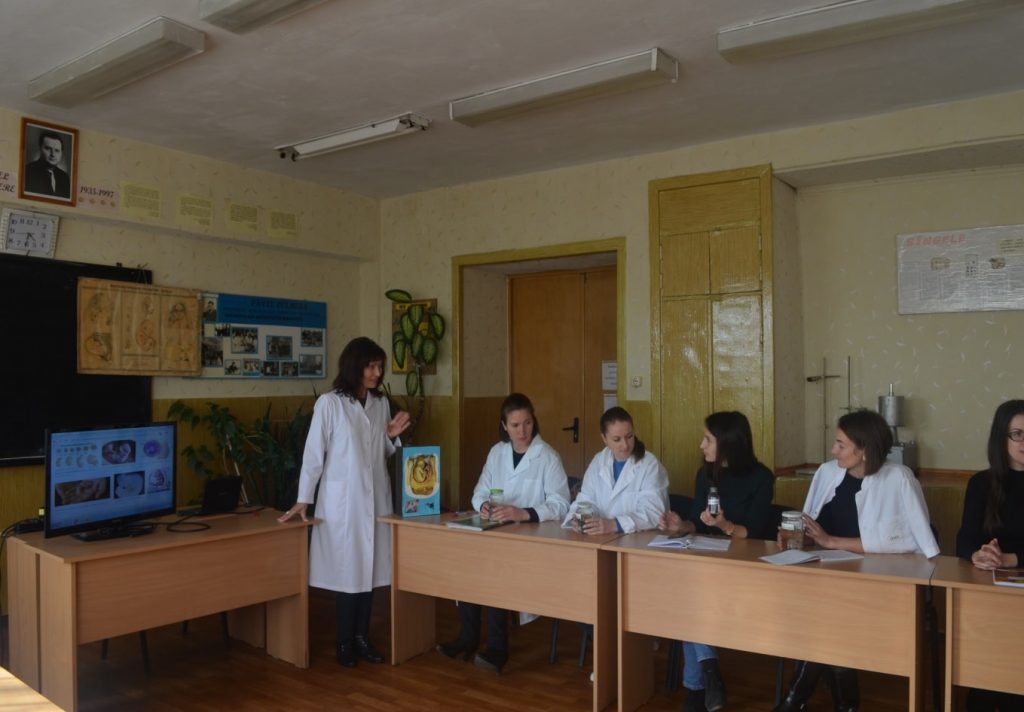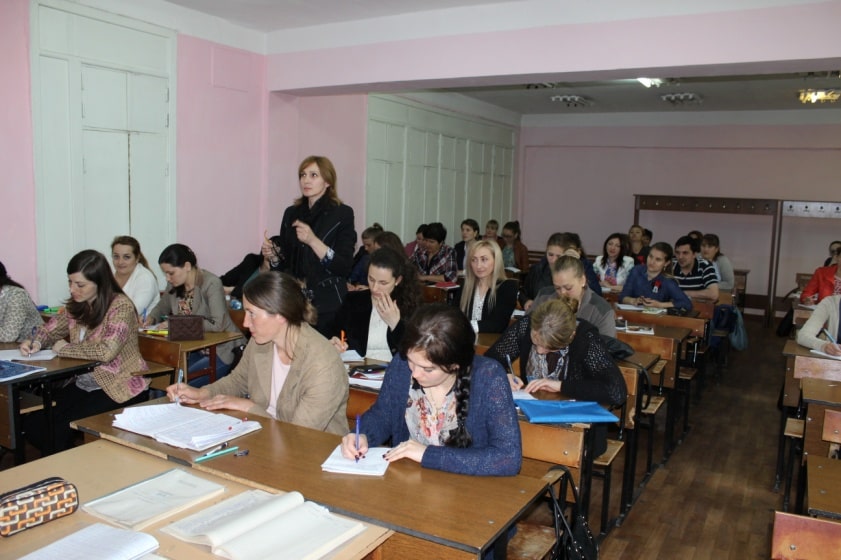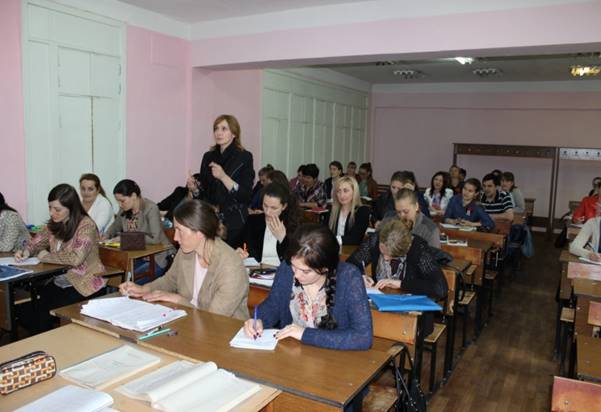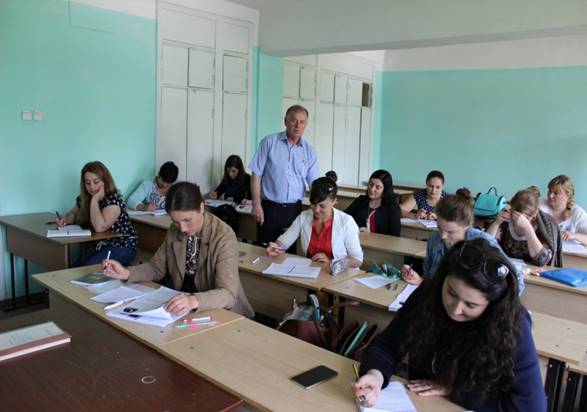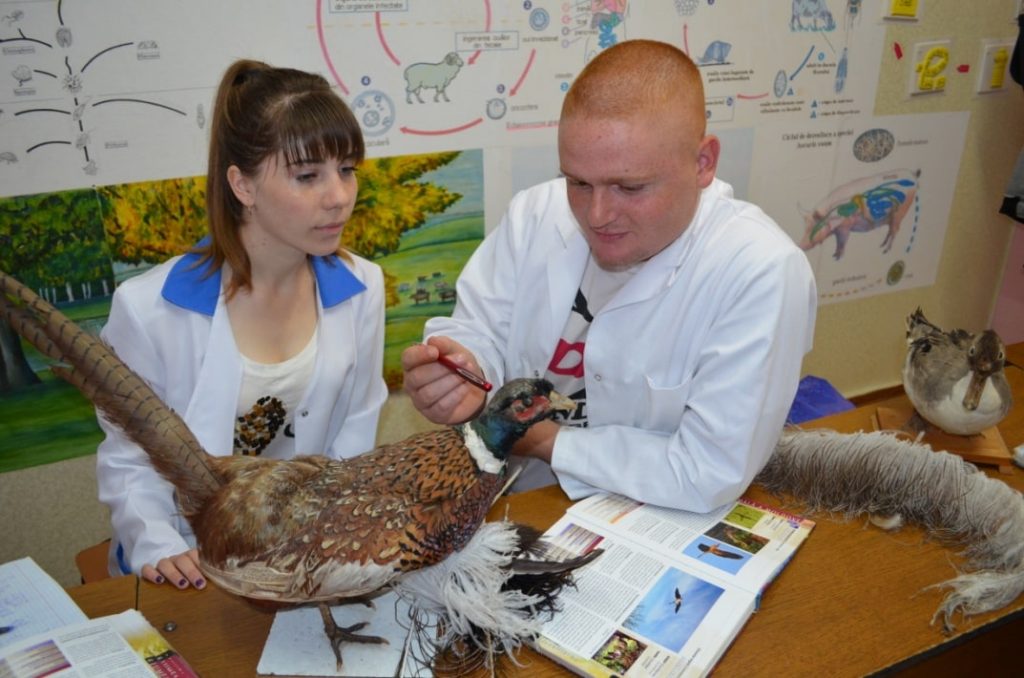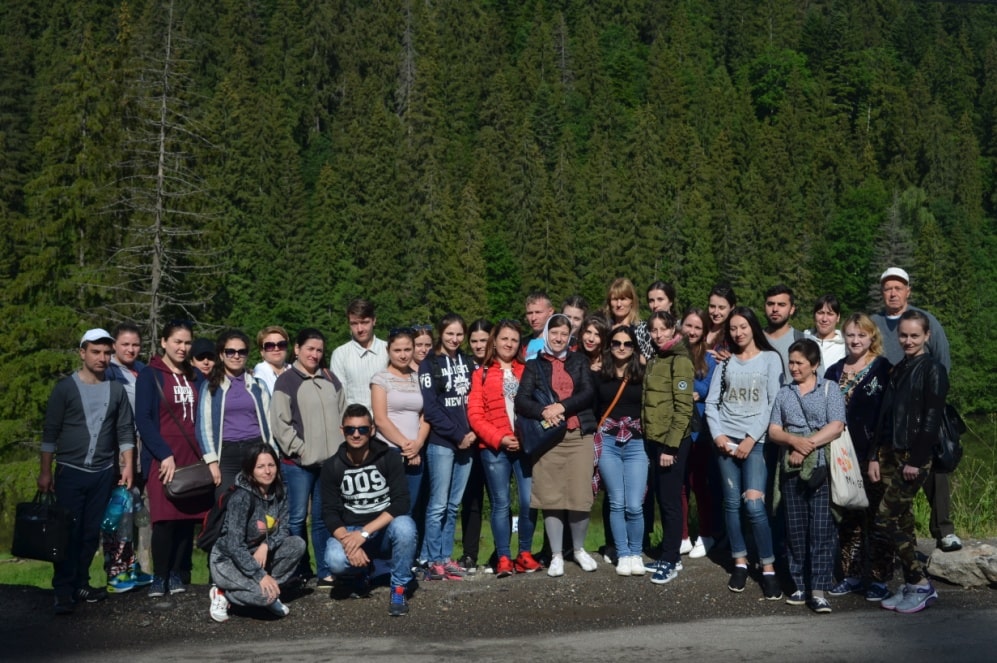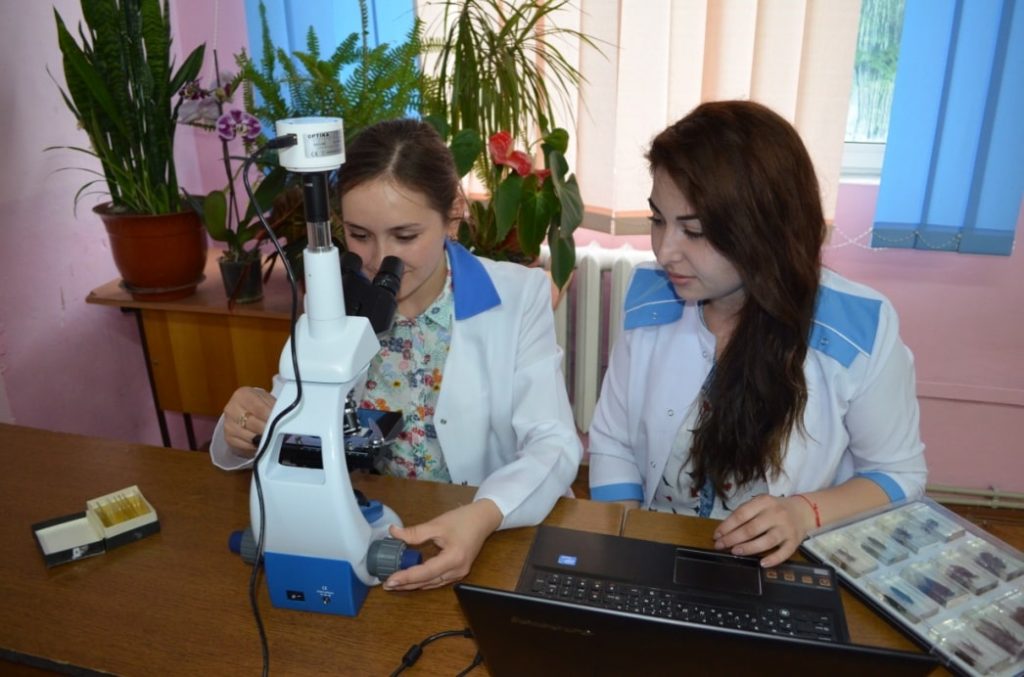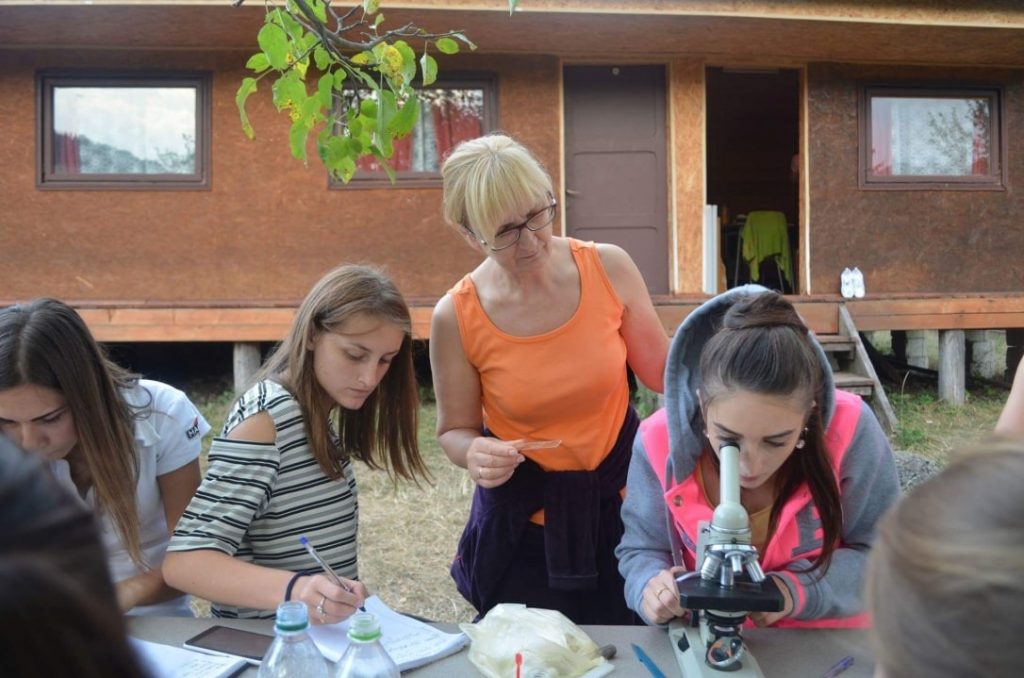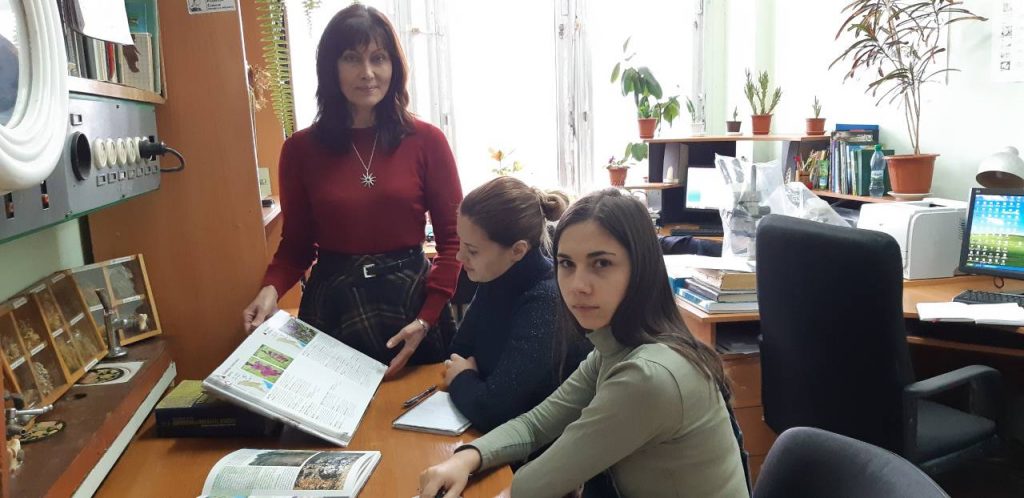Department of Animal Biology
I. General information

The Department of Animal Biology is one of the first departments of the Faculty of Biology and Chemistry, established in 1931. Over the years its name and composition have been changed several times, but the current name exists since 2001, being formed after merging the departments of Zoology and Physiology of Man and Animals. At this department, in different periods, famous personalities of the national university education have successfully activated:
- Pavel Pulbere – doctor, associate professor, specialist in the field of human and animal physiology, who contributed to the preparation of a generation of famous scientists from our country. He worked as vice-rector for teaching, dean of the faculty and head of department for over three decades;
- Ion Procopet- doctor, associate professor, specialist in the field of human physiology and anatomy, rector, dean and head of department in different periods;
- Vladimir Bolocan – doctor, associate professor, head of department, in the period 1971-1976, specialist in the field of invertebrate zoology;
- Leon Popa – doctor, associate professor, head of department, in the period 1977-1985, specialist in the field of ichthyology, zoology, fauna and ecology;
- Vasile Tofan – doctor, associate professor, specialist in the field of herpetology, zoology, fauna and ecology;
- Teodor Gontea – doctor, associate professor, head of department, during 1989-1996, specialist in the field of malacology, invertebrate zoology and ecology;
- Veaceslav Cirlig – doctor, associate professor (docent), head of department, in the periods 2003-2005 and 2014-2015, specialist in the field of herpetology, ornithology and teriology.
These well-known personalities in the field of science and education have contributed to the determination and affirmation of priority directions of training and research at the department and have developed fundamental courses in the field of zoology, fauna, anatomy, physiology, ecology, etc. As scientists, they have substantiated such research directions as “Mechanisms of regulation of the central nervous system on cholesterol metabolism in the prophylaxis of atherosclerosis” (Ion Procopeţ, Pavel Pulbere); “The ichthyofauna of the Prut river basin and its role in rheophilic ecosystems” (Leon Popa); “Study of faunal and ecological aspects of amphibians and reptiles in Moldova” (Vasile Tofan); “Malacological complexes of Dniester river ecosystems and their functional stability depending on environmental factors” (Teodor Gontea); “Biological peculiarities and behavior of Hyla arborea L. species (Amphibia, Anura) in the Central Forests” (Veaceslav Cîrlig).
At the department, in different periods, such personalities in the field of biological sciences also carried out a succesful professional activity, such as: academician Ion Ganea, associate professor, doctor Nicolae Corcimaru, professor, doctor Andrei Munteanu and others.
The collaborators of the department successfully carry out scientific research in such fields as: entomofauna, malacofauna and parasitofauna of natural and anthropized ecosystems (V. Coadă, A. Țîganaș); ecology, ethology and protection of herpetofauna (T. Cozari); biomorphology, polymorphism and adaptations of amphibians and reptiles at the population level (T. Cârlig); functional reserves of the human body (L. Moşanu-Șupac, D. Coşcodan). Annually, the collaborators of the department carry out scientific research, the results of which are presented at scientific forums in the country and abroad. In recent years, the members of the department have participated in several projects:
- TEMPUS IV QAEM Development of quality assurance in higher education in Moldova (2012-2016);
- Facilitating technologies for children’s adaptability to the educational process (2010 – 2014);
- 530537-TEMPUS-2012-1-DE-TEMPUS-SMGR Development of Qality Assurance in Higher Education in Moldova (2013-2016);
- The study of the natural area of the lower course of the river Ichel in order to conserve biodiversity and protect geological and hydrological objects (2011-2014);
- Study of anthropogenic action on biodiversity, physiological status of the population of Chisinau and the use of results in the formation of transdisciplinary skills in the educational process (2015-2018).
Currently, the department has 9 teachers: 1 – doctor, professor, 6- associate professors, 1- university lecturer, 1 – assistant.
Viorica Coada – head of department, doctor, associate professor, holder of courses in Invertebrate Zoology, Anthropic Impact, Environmental Protection; Tudor Cozari – doctor, professor (Vertebrate Zoology, Ecological Ethology, Ecological Education, Ecoevolutionary Ethology, Fauna of Moldova); Lora Moşanu-Șupac – doctor, associate professor (University of Histology, Human Physiology, Psychophysiology, Human Anatomy and Physiology); Tatiana Cîrlig – doctor, associate professor (Professor of Vertebrate Zoology, Population Ecology, Comparative Anatomy and Biostatistics, Human Ecology); Diana Coşcodan – doctor, associate professor (Human Anatomy, Human Physiology, Biorhythmology and human adaptation to extreme conditions, Neuroendocrinology, General Physiology); Ana Țîganaș – senior lecturer, vice dean (Invertebrate Zoology, Zoology, Parasitology, Entomology), Nina Liogchii – doctor, associate professor (Ecological Security, Initiation Practice, Specialized Practice), Angela Nevoia doctor, associate professor (Psychophysiology, Avoidance) , Regina Fasola, assistant (Ecology, Ecological Audit, Ecological Impact).
The professors of the department maintain collaboration links with specialized colleagues from different university and research institutions in the country and abroad: Institute of Physiology and Sanocreatology of the MECC of the Republic of Moldova, Institute of Zoology of the MECC of the Republic of Moldova, Department of Human and Animal Biology of USM, Center for Preventive Medicine of Chisinau, Institute of Ecology and Geography of MECC of the Republic of Moldova, “Codrii” Reservation, Pedagogical University of Krakow (Poland), University of Craiova (Romania), State Agrarian University of Moldova, Alexandru Ioan Cuza University (Iaşi, Romania), “Grigore Antipa” National Museum of Natural History (Bucharest, Romania), National Museum of Ethnography and Natural History, etc.

Viorica Coada, PhD, Associate Professor
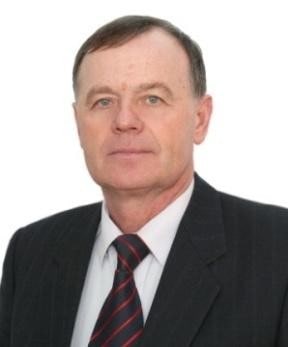
Tudor Cozari, doctor habilitat in biology, university professor

Lora Mosanu Supac, doctor in biological sciences, associate professor

Tatiana Cîrlig, doctor in biological sciences, associate professor

Diana Coșcodan, biological sciences doctor, associate professor

Ana Țîganaș, assistant professor, vice dean
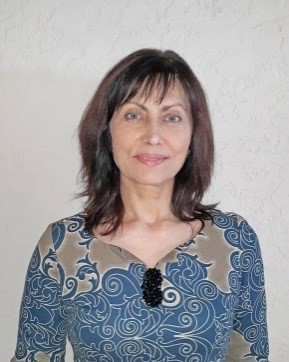
Nina Liogchii, doctor in biological sciences, associate professor
The department ensures the training of graduates and master students with full-time and part-time attendance, internships for continuous professional training of teachers.
Undergraduate studies focus on three general areas of study:
- Education Sciences
- Biological sciences
- Environmental sciences
The master studies are focused on two general fields of study:
- Education Sciences
- Biological sciences
The professors of the department are holders of several disciplines for:
cycle I. – Histohembriology, Invertebrate zoology, Vertebrate morphology, Vertebrate taxonomy, Anatomy, Fauna of Moldova, General physiology, Ecology, Comparative vertebrate anatomy, Ecological safety, Ecological ethology etc., as well as for
cycle II – Biological and ecological statistics, Applied state physiology, Neuroendocrinology, Population ecology, Eco-evolutionary ethology, Principles of ecological education, Biorhythmology and human adaptation to extreme conditions, Psychophysiology, Neuropsychology, Human ecology, Experimental biological methodology etc.
The Animal Biology Department has the following didactic-scientific laboratories:
- Physiology Laboratory „P. Powder “
- Laboratory of Anatomy and Histoembryology
- Laboratory of Vertebrate Zoology and Ecology
- Invertebrate Zoology Laboratory.
The endowment of the laboratories corresponds to the requirements of the study process for the respective disciplines. They are endowed with the necessary equipment, materials, technical means. At the faculty, the strategy of continuous modernization of the laboratories of the departments is realized.
The scientific-didactic activity of the department holders is carried out in 2 directions:
– the didactic activity itself (courses, seminars, laboratory works, internships, doctoral theses);
– scientific-didactic activity, which involves:
- Fundamental and applied theoretical research, within domestic, institutional and international projects of young researchers;
- Elaboration of scientific-methodical works for the university education (university textbooks, course materials, compendiums, methodical indications, etc.);
- Elaboration of scientific-didactic works, school curricula, school textbooks, guides for teachers, collections of evaluation tests, notebooks for students for the pre-university cycle.
- Traditionally, every year, the Student Scientific Conference is held where students present their scientific results.
The professors of the departments are authors of scientific and didactic works; they actively participate in the works of scientific conferences. The teachers from the departments are recognized in the republic, in schools, high schools, in other higher education institutions, thanks to the results obtained in their scientific-methodical activity, opened to collaboration, they are appreciated for their good training and goodwill. The professors are reviewers of the master’s theses, participate in the Specialized Scientific Councils in defending the theses of doctor. The Department has developed and implemented the Scientific Research Plans, which specify the research objectives of each teacher and departments. The investigations undertaken by the members of the department are carried out in the system, they form a continuity, through this they are valuable and useful to the educational process.
The professors of the specialized departments continuously capitalize on the results of the scientific researches within the courses they hold. Therefore, there is a connection between the scientific concerns of teachers and the subject taught. The undergraduate practice that the students carry out in order to elaborate the undergraduate theses is directed towards the theoretical research and the performance of some experimental works on a concrete subject. The best students carry out research works in collaboration with experienced researchers from scientific centers in the country, using high-performance equipment, methodologies and technologies, and some of the results are published in various scientific editions.

